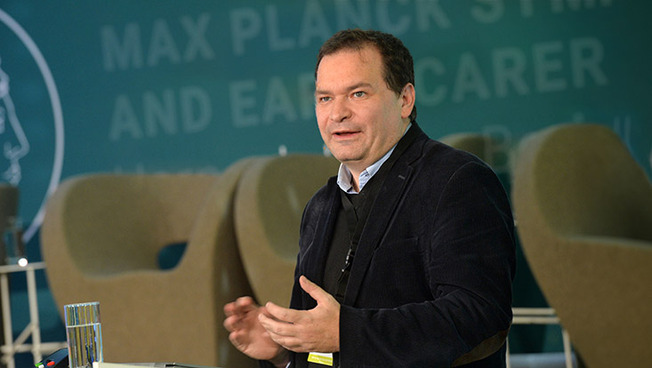15 October 2024
Grant worth €660,000 from the German Research FoundationImproving Academic Surveys with Machine Learning

Photo: Max Planck Society
Panel surveys are frequently used in social science research. This involves asking a focus group questions about a single topic or various topics, such as their attitudes or opinions, over a longer period of time. The panels can be composed to represent society as a whole or a specific target group.
In the long run, however, as individual participants tend to respond to questions less frequently or stop providing answers at all, the panel may not accurately reflect the entire breadth of the focus group. Especially during online surveys, which are popular today but require people to independently open, complete, and send questionnaires, participants sometimes stop responding and stay silent. This is called nonresponse bias and it limits the value of results.
A team led by Prof. Dr. Martin Spindler, a statistics professor in the Faculty of Business Administration at the University of Hamburg, wants to explore what nonresponse bias is all about and how it can be prevented. Researchers from the University of Hamburg, Heinrich Heine University Düsseldorf, and GESIS Leibniz Institute for the Social Sciences, Mannheim, have joined up and acquired a research grant of €660,000 from the German Research Foundation.
Their study is based on GESIS, a social science data infrastructure for doing research with a panel that represents Germany’s adult, German-speaking populace. “We want to find out what participant characteristics affect commitment during different phases of the survey,” says Spindler, a statistics professor and coordinator of this project. The researchers will also examine the various features of the survey design as a possible cause of nonresponse bias.
“There are many specifics at play, which may be decisive and connected in different ways. In order to manage the extremely large amount of data and distinguish between causalities and correlations, we will apply so-called Causal Machine Learning methods—a relatively recent field,” says Spindler. The researchers will use and adapt existent tools for data analysis and also develop new methods, which will be publicly accessible.
Furthermore, a second part of the project will examine if and how different incentives, such as pay or text message or email reminders in between panel surveys, help boost participant motivation or change response patterns. “Our basic research is aimed at improving social science research, in particular, panel surveys as a tool, to ensure more reliable and meaningful results,” says Spindler.
----
Do you need photos for reports about the University of Hamburg? You can find high-resolution press photos in print quality for free in our image database.
Are you looking for an expert for an article on a particular topic? The University’s experts service offers a search by department and key word which you can use to get contact details.
